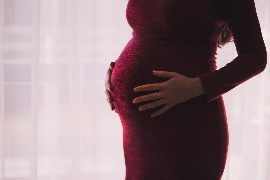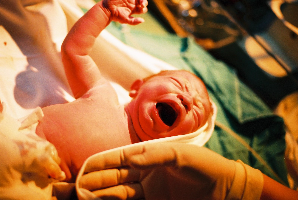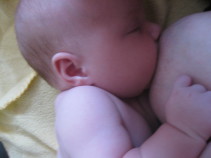
Preparing for labour, birth and beyond
Information to optimize your birth experience and well-being
It is reassuring that most women with epilepsy have a normal birth and healthy baby. Only in extreme cases is epilepsy an indication for induction of labour or caesarean section. If you have active epilepsy/ prescribed epilepsy medication you are advised to attend a consultant led maternity unit for labour. The risk of seizures in labour is low however; additional monitoring may be required for you and baby.
How can I prepare for labour?
Adobe Acrobat document [264.1 KB]
Please discuss your birth choices with your midwife and have the knowledge that your birth plan is a working document you can change and adjust to meet your individual needs. Consider what you do/don't want and feel you can use a check list to help you write your birth plan to maximize your safety whilst in hospital care. Example:
- Order and pack an extra supply of epilepsy medication in anticipation of admission to hospital
- Set reminders for medication times on your mobile Epilepsy Action anti-seizure medicines information
- Share your birth plan, summary of epilepsy and treatment plan with the hospital midwife
- Identifying emergency call buzzers in all rooms. If your partner needs to leave the room, please ask for a midwife to attend to maximize your safety
- Continue your epilepsy medication as prescribed even during labour; do not miss any doses as this could result in an increased risk of seizures occurring.
- If you feel nauseous, please ask for an anti-sickness injection to prevent vomiting and allow absorption of your epilepsy medication.
- Bring a recording of all your favourite music that helps you to relax for use in labour.
- Many women find it useful to have massage and use relaxation techniques which they have practiced antenatally, such as: Mindfulness-NHS advice. For further details click on: Birth plan advice
- Stay as mobile as possible and drink enough water in order you are not thirsty.
- Feel supported and listened to and be central to all shared decision making about your care. Any intervention should only be with your consent.
- If immersing in water is your choice of pain relief, as well as discussing risk assessment and safety with the midwife & obstetrician; do conduct your own risk assessment. Click on Epilepsy Society, Risk assessment. Also, ask yourself, would you feel safe in that environment; if there a hoist if I need to get out quickly? Avoid being in a bath or pool unattended at all times. Stay well hydrated, as it can become really hot in the birthpool room. If you feel at risk of a seizure, inform your birth partner and midwife and be helped out of the pool, safely.
- Inform your birth partner and midwife urgently if you feel at risk of seizure at any time in the labour.
- Avoid pethidine as this is converted to norpethidine which evidence suggests has the potential of lowering seizure threshold. Guidelines suggest that Diamorphine is an alternative analgesia if requiring sleep in early labour; this will change your perception of the pain rather than take it away. Please note, this can cause excessive drowsiness and vomiting.
- Gas and air (entonox) is considered safe for most women with epilepsy. Be careful not to overbreath as this can make you feel dizzy, light-headed, with tingling in your lips, hands and sometimes feet. Following the contraction, if you have these symptoms, tell the midwife and she will be able to show you how to relieve these symptoms.
- If you have a history of absence seizures, avoid hyperventilating (over-breathing) if using entonox (gas and air) and when baby’s head is delivering.
- Consider epidural if this is your requested form of pain relief or if you require more effective analgesia (pain relief) to allow you to rest. Ordinarily, an epidural is sited when a woman is in established labour. Be guided when to have it by how you are feeling, your level of tiredness, your progress in labour and the expert opinion of the midwives/obstetricians who are caring for you.
- For me, the safety data for use of TENs machines is inconclusive for use in pregnant women with no long term follow-up of mums and babies. Therefore, I am personally unable to recommend this form of pain relief. Please discuss this further with your midwife or care provider.
Following the birth
Your midwife will encourage you and baby to be skin-to-skin following birth and support you with your chosen method of feeding. It is advised to consent to baby having a vitamin K injection to reduce the risk of epilepsy medication related haemorrhagic disease of the newborn. Baby will be examined by a paediatrician to reassure normality following birth.
On the postnatal ward; ensure you continue to take your epilepsy mediation. Unless the ward can accommodate partners overnight; you are not advised to stay in a single room because of dangers related to unwitnessed seizures whilst in hospital care. Let a staff member know if you require additional support to optimize your safety or if you feel at risk of a seizure. Conduct your own risk assessment for the hospital environment: Epilepsy Society Risk Assessment
Infant feeding
Women taking epilepsy medication are usually supported with their choice of infant feeding but it is important to consider safety and the impact infant feeding has on sleep. If you decide to breastfeed, this is generally encouraged by our national guidelines and considered safe or moderately safe for most epilepsy medications1, 2. However, all babies should be monitored individually for signs of adverse effects including excessive sedation. If baby is preterm or jaundiced, seek further advice from the paediatrician about the safety of breast feeding. If you take more than one epilepsy medication, take epilepsy medication in high doses, primidone, phenobarbital, clobazam, clonazepam, diazepam or lorazepam extreme caution should be taken because of the risk of drowsiness in the infant3. Ethosuximide, lamotrigine, primidone, levetiracetam and zonisamide transfer to breast milk easily3 therefore, please obtain urgent professional support if baby develops breathing problems, rash, excessive drowsiness, diminished ability to suckle or static weight gain. If baby does develop rash, it is usually recommended that breast feeding is discontinued. In some cases it is advised that baby's serum levels of your epilepsy medication, platelets and liver function are monitored; in the event of this careful consideration should be given about continuing breast feeding because of baby having invasive blood tests. Contact your doctor if you are concerned about baby reaching its developmental milestones. To view research evidence about the epilepsy medication you are taking and effect on breastfeeding, click TOXNET. To ensure baby is suckling well, do ask a member of staff to observe your feeding technique. Additional support and information about breast feeding can be obtained from the organisations listed at the bottom of this page.
Medication management
Epilepsy medication blood levels rise rapidly to pre-pregnancy levels in the early days following delivery. If the dosage of epilepsy medication was increased during pregnancy, this may result in adverse effects: excessive sleepiness, double vision, unsteadiness, low mood or irritability. Having a flexible medication reduction plan in place in preparation is ideal; if not, obtain urgent advice from your prescriber if you or baby develops adverse effects. Please inform your GP of any changes that have been made to your medication.
Reducing the risks of seizures postnatally
It is so important to continue taking your epilepsy medication as prescribed, stay well hydrated, eat a healthy diet and have adequate sleep. Infections can trigger seizures; if you develop flu like symptoms, temperature, offensive vaginal discharge, mastitis, uterine or wound infection, please seek urgent treatment from your GP/midwife. Please report any change in your usual seizure control to your doctor/specialist team urgently, as women can remain vulnerable to seizure change in the months following the birth of their baby.
Optimising sleep
Sleep deprivation related to parenting is extremely common; this can be particularly provocative for seizure control with a parent who has epilepsy. Getting into an early night sleeping routine can be helpful as well as gaining feeding support from your partner overnight. Further information can be gained from: Emmas diary baby sleep NHS getting baby to sleep
For further information, please click onto the following resources
Breast feeding support: La Leche League GB and the National Childbirth Trust (NCT)
The Breast Feeding Network: Information about drugs in breast milk National breastfeeding Helpline number
Having a baby Epilepsy Action
Pregnancy & parenting Epilepsy Society
Baby Centre UK provides evidence based information
Author: Kim Morley (2018) Information to optimise your birth experience and well-being. Available from: www.womenwithepilepsy.co.uk
References:
- BNF 2017, n.p.: London : BMJ Group, Pharmaceutical Press and RCPCH Publications Ltd, 2017
- NICE clinical guideline 137 (2012) The epilepsies: the diagnosis and management of the epilepsies in adults and children in primary and secondary care.
- Veiby, G, Bjørk, M, Engelsen, B, & Gilhus, N 2015, 'Epilepsy and recommendations for breastfeeding', Seizure, 28, pp. 57-65, MEDLINE, EBSCOhost, viewed 25 March 2016.



